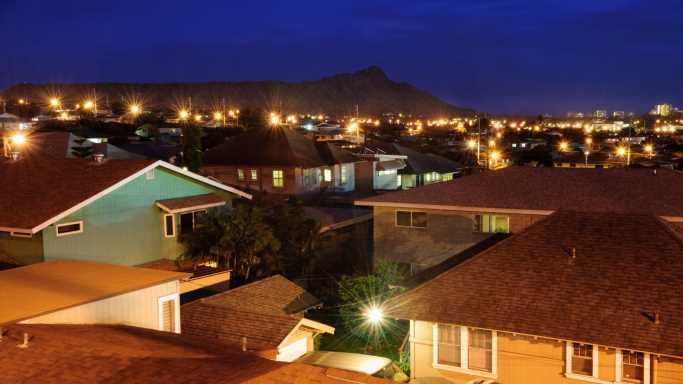This Is America’s Most Sleep-Deprived City
Sleep, or lack thereof, has major effects on health. According to the Cleveland Clinic, among these are lack of alertness, memory problems, stress on relationships and car accidents. The analysis goes on the say:
If you continue to operate without enough sleep, you may see more long-term and serious health problems. Some of the most serious potential problems associated with chronic sleep deprivation are high blood pressure, diabetes, heart attack, heart failure or stroke.
Johns Hopkins recently added to this list of major health effects, including aging of the brain, increased chance of getting a cold and a higher chance of obesity. Yet, millions of Americans do not get enough sleep. Nationwide, this is 35.2% of adults. In some parts of the country, sleep deprivation is even more common.
To improve sleep habits, the Centers for Disease Control and Prevention (CDC) recommends developing a routine of going to bed at the same time each night and waking up at the same time every day. The CDC also advises regular exercise and avoiding caffeine, large meals and alcohol before bedtime. Removing electronic devices, such as TVs and computers, from the bedroom also can help improve sleep habits.
Using data from County Health Rankings & Roadmaps (CHR), a Robert Wood Johnson Foundation and the University of Wisconsin Population Health Institute joint program, 24/7 Wall St. identified America’s most sleep-deprived metropolitan area.
The analysis revealed that America’s most sleep-deprived city is Urban Honolulu. Here are the details:
- Adults reporting insufficient sleep (less than 7 hours): 47.1%
- Adults reporting poor or fair health: 17.0% (133rd lowest of 384 metros)
- Average number of mentally unhealthy days reported in past month: 3.6 (10th lowest)
- Adult obesity rate: 24.4% (29th lowest)
- Adults with diabetes: 11.3% (174th highest)
Methodology: To determine America’s most sleep-deprived metro, 24/7 Wall St. reviewed the share of adults reporting fewer than seven hours of sleep on average from the 2021 CHR. While this report is from 2021, insufficient sleep figures published in the report are from 2018.
We used the 384 metropolitan statistical areas as delineated by the United States Office of Management and Budget and used by the Census Bureau as our definition of metros.
Metros were ranked based on the share of adults reporting insufficient sleep. Additional information on the share of adults reporting poor or fair health, the average number of mentally unhealthy days reported in the past 30 days, adults 20 years and older who report a body mass index of 30 kg/m2 or higher (adult obesity rate) and the share of adults 20 years and older with diagnosed diabetes are also from the 2021 CHR.
Click here to see all of America’s most sleep-deprived cities.
Get Our Free Investment Newsletter
Source: Read Full Article



